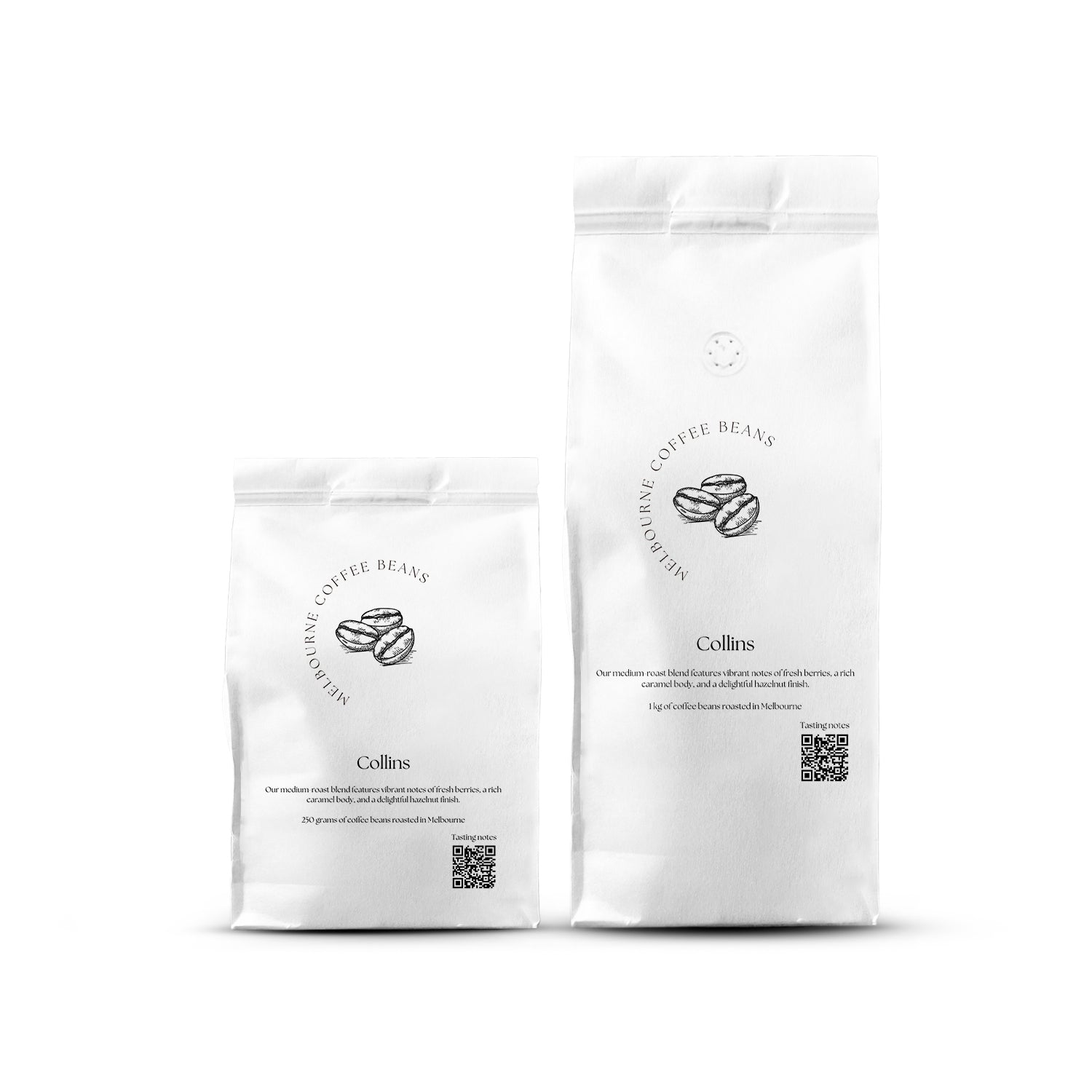As a café owner, I've spent countless hours experimenting with different ways to keep my coffee beans as fresh as possible. One question that comes up often is: "How long will coffee beans last in an airtight container?" This blog aims to answer that question and provide you with expert tips to ensure your coffee beans stay fresh and flavourful for as long as possible.
Key Takeaways
- Proper storage in airtight containers prevents oxidation, which keeps your coffee beans fresh.
- Factors like light, heat, moisture, and air exposure affect coffee freshness.
- Coffee beans stay fresh for up to nine months in an airtight container if stored properly.
Understanding Oxidation and Its Effects on Coffee Beans
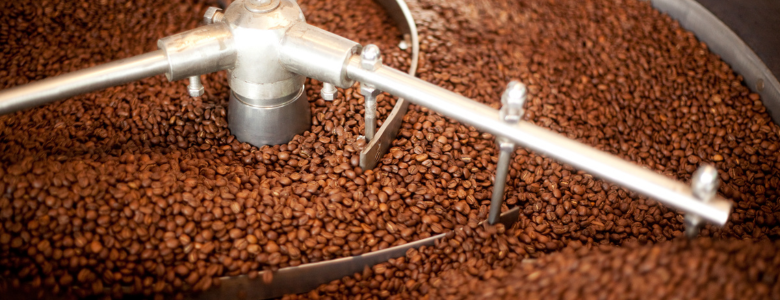
Oxidation is a natural process that occurs when your beans are exposed to oxygen. This exposure leads to the gradual breakdown of the beans' flavour compounds. The roasting process of whole beans releases carbon dioxide - a process known as degassing, which is crucial for achieving the beans' peak flavour.
However, once the coffee beans are degassed, they become more susceptible to oxidation. When coffee beans oxidise, they release their precious oils and aromatic compounds. This process starts as soon as the beans are roasted and continues until, well, you've got a bag of stale coffee beans on your hands.
The result? A less flavourful, often bitter cup of coffee that's a far cry from the rich, complex brew you were hoping for.
How Airtight Containers Prevent Oxidation
This is where airtight containers come in handy. By creating a seal that keeps oxygen out, these little beauties slow down the oxidation process, helping your beans stay fresh for longer. They also protect your coffee from other flavour-killers like moisture, light, and heat.
When you store coffee beans in an airtight container, you're essentially pressing pause on the aging process. It's like a time capsule for your coffee, keeping it as close to its fresh coffee flavour as possible until you're ready to grind and brew.
Coffee Bean Shelf Life in Airtight Containers
So, how long do coffee beans stay fresh in air-sealed containers? Well, it depends on a few factors, but generally speaking, you're looking at about 2-4 weeks for peak freshness. After that, they're still drinkable, but you might notice a decline in flavour.
Different types of beans have slightly different shelf lives. Let's break it down.
Fresh Whole Beans
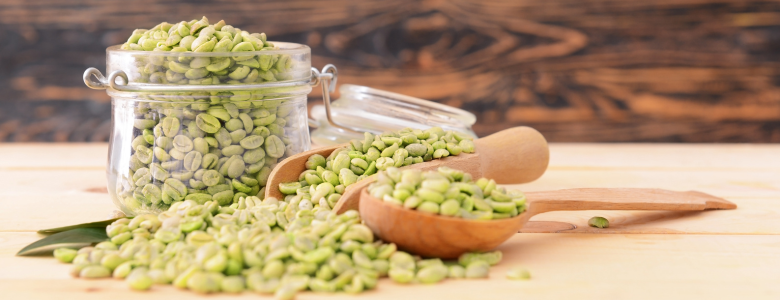
Fresh whole beans, often referred to as green coffee beans, are unroasted beans that have been processed and dried but not yet subjected to the roasting process. These beans have a much longer shelf life compared to roasted beans due to their stable chemical composition.
- Shelf Life: When stored in an airtight container, fresh coffee beans can last for up to 12 months or even longer without a significant loss in quality. Some coffee enthusiasts argue that under ideal conditions—cool, dark, and dry storage—green coffee beans can remain viable for up to two years. However, they are best used within a year to ensure optimal flavour when roasted.
- Storage Conditions: To maximise their shelf life, keep fresh whole beans in a tightly sealed, airtight container placed in a cool, dark, and dry environment. Avoid storing them in areas with fluctuating temperatures or high humidity, as these conditions can affect their quality.
Roasted Beans
Roasted beans, which are what many coffee drinkers are familiar with, undergo significant chemical changes during the roasting process. These changes, while essential for developing the beans' flavour, also make them more susceptible to oxidation and staling.
Arabica Beans
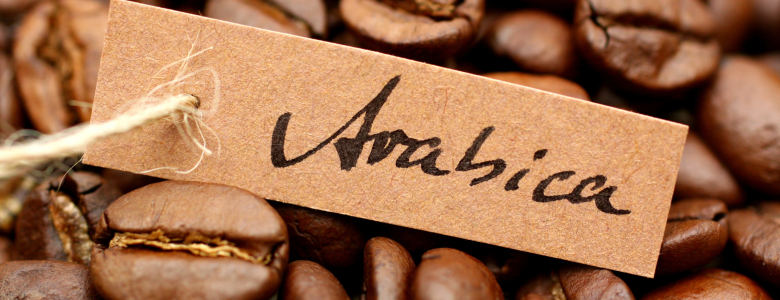
Arabica beans are the most popular type of coffee bean, known for their delicate and nuanced flavour profile. They tend to be more expensive due to their growing requirements and the meticulous processing they undergo.
In an airtight container, Arabica beans can maintain their peak flavour for up to three months. After this period, while they will still be drinkable, their nuanced flavours may begin to diminish, leading to a less vibrant cup of coffee.
Excelsa Beans
Excelsa beans are often used in blends to add complexity and depth due to their tart, fruity, and dark roast flavours. They are considered a variety of the Liberica species.
Excelsa beans can retain their flavour for approximately three to four months in an airtight container. Their tart and fruity notes can become muted over time, so it’s best to use them relatively quickly to enjoy their full flavour profile.
Robusta Beans
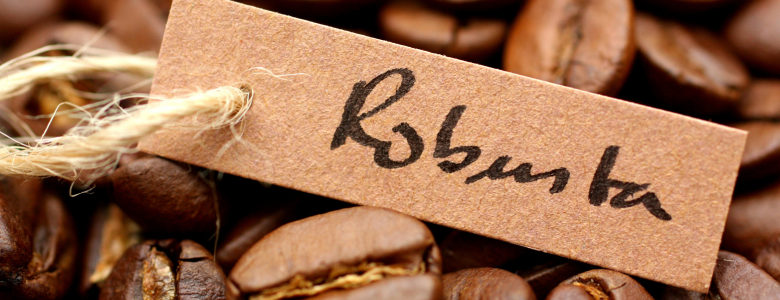
Robusta beans are known for their strong, bold flavour and higher caffeine content. They are often used in espresso blends and instant coffee due to their robust taste and crema-producing properties.
Robusta beans are more durable than Arabica beans and can stay fresh for up to six months when stored in an airtight container. Their stronger flavour profile tends to hold up better over time, making them a good choice for those who prefer a bolder cup.
Liberica Beans
Liberica beans are less common but have a unique, fruity, and floral flavour profile that some coffee enthusiasts in Australia appreciate. They are typically grown in specific regions and can be more challenging to find.
When stored in an airtight container, Liberica roasted coffee beans last for about three to four months. Their distinct flavour notes can fade more quickly compared to Robusta beans but can still offer a unique coffee experience if consumed within this timeframe.
Importance of the Roast Date
Regardless of the type of coffee bean, the roast date is a crucial factor in determining freshness. Freshly roasted coffee beans will have a more extended shelf life and better flavour compared to beans that have been sitting on the shelf for a while. When purchasing coffee, always check the roast date and aim to use the beans within the optimal freshness period specified for each type.
Lifespan of Ground Coffee in Airtight Containers
Ground coffee's lifespan is shorter compared to whole beans because grinding increases the surface area exposed to air, accelerating the oxidation process. Here’s how long ground coffee can stay fresh in various conditions:
Freshly Ground Coffee
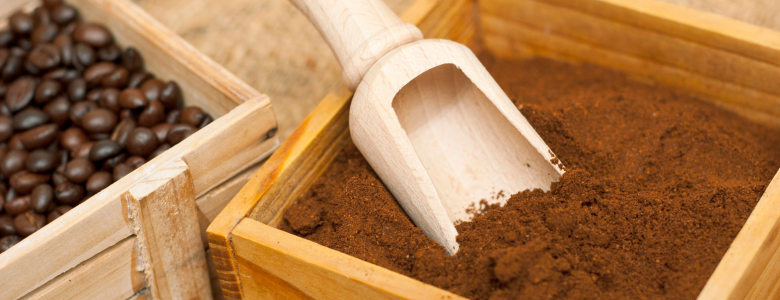
Freshly ground coffee, whether it's from your own beans or a local coffee shop, has a unique position in terms of storage and freshness. While fresh coffee grounds offer superior flavour compared to pre-ground coffee, they still face the challenge of a shorter shelf life due to their increased exposure to air.
Freshly ground coffee is at its peak flavour immediately after grinding. Ideally, it should be used within minutes to an hour of grinding for the best taste.
If you must store freshly ground coffee, an airtight container is crucial. In an airtight container, freshly ground coffee can maintain a reasonable level of freshness for about one to two weeks. However, it's important to note that even within this period, the coffee will gradually lose its peak flavour and aroma.
Unopened Pack
An unopened vacuum-sealed pack of ground coffee can last for up to six months to a year when stored in a cool, dark place. The vacuum-sealed packaging significantly reduces air exposure, keeping coffee beans fresh for a longer period.
Store the unopened pack in a pantry or cupboard away from heat, light, and moisture. This helps maintain the vacuum seal's integrity and the coffee's quality.
Opened Pack
Once opened, ground coffee’s freshness declines rapidly. In an airtight container, ground coffee can stay reasonably fresh for about two weeks to one month. After this period, it will start to lose its flavour and aroma.
Transfer the ground coffee to an airtight container immediately after opening the pack. Ensure the container is tightly sealed after each use to minimise air exposure. Keep the container in a cool, dark place to further protect the coffee's quality.
Comparing Storage Methods
Now, let's talk about the different ways you might store your coffee beans. Some folks just leave them in the bag they came in, others transfer them to a container, and some even pop them in the freezer to extend their shelf life. Each method has its pros and cons, and what works best might depend on how quickly you go through your coffee.
Standard Packaging vs Airtight Container
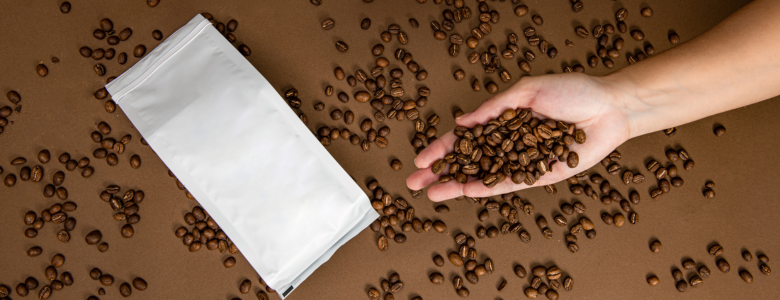
Alright, let's compare keeping your beans in their original packaging versus transferring them to an airtight container. Most coffee bags these days come with a one-way valve that lets carbon dioxide escape without letting oxygen in. This is great for freshly roasted coffee beans, which release a lot of CO2 in the first few days after roasting.
However, once you've opened that bag, all bets are off. The seal is broken, and air can freely flow in and out. This is where an airtight container really shines. By transferring your beans to a proper storage container, you're creating a much more stable environment.
Selecting the Right Sealed Container
When it comes to choosing the right airtight container for your coffee beans, you've got a few things to consider.
- Glass and ceramic mason jars are topic choices because they don't absorb odours or flavours and allow you to see your beans even without opening them.
- Stainless steel is another good option, especially if you're a bit clumsy (we've all broken our fair share of glass jars!).
- Metal containers are excellent for storing roasted coffee beans, thanks to their durability and airtight qualities.
- A vacuum-sealed bag is great for removing excess air and is especially useful if you buy coffee in bulk.
- Look for containers with a tight-fitting lid that creates a good seal or a resealable bag with a one-way valve that lets carbon dioxide escape without letting air in.`
- Size matters too. Ideally, you want a container that's just big enough to hold about a week's worth of coffee—this way, you're not constantly opening and closing it, which would let in more air.
Practical Tips for Optimal Coffee Bean Storage
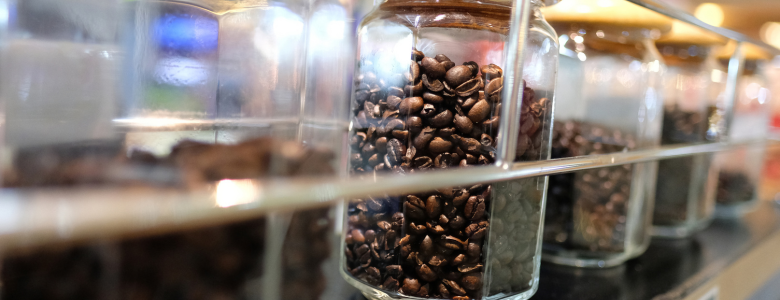
Let's talk about storing coffee beans properly. As someone who's been slinging coffee for years, I've picked up a few tricks to keep your brew tasting ace.
- Invest in a good airtight container - it's a game-changer, trust me. You want to keep those beans in a dark, cool spot away from air, light, heat, and moisture.
- Only buy coffee beans that you'll use in a couple of weeks. I know it's tempting to stock up when your favourite roaster has a sale, but coffee's not like wine - it doesn't get better with age.
- Get to know your local coffee roasters - these legends often have the freshest beans, and they can give you top-notch advice on storing your specific blend.
- When you're ready to brew, only grind what you need. Whole beans stay fresh longer than ground coffee, so treat your grinder like your new best mate.
- Keep your storage container clean! Give it a good wash between batches to avoid any funky flavours mixing in with your fresh beans.
- Don't stress too much about expired coffee beans. While they might not make the most ripper cup of coffee, they're still safe to drink. But let's be honest, why settle for less when you can have the freshest coffee?
Freezing Coffee Beans: Yes or No?
Now, let's tackle the big question: should you freeze coffee beans? It's a bit of a controversial topic in the coffee world.
Some swear by freezing coffee beans, reckoning it keeps them fresh for ages. Others reckon it's a surefire way to ruin a perfectly good batch. So, what's the go?
Here's the deal: freezing can help preserve coffee beans, especially if you've bought them in bulk and can't use them all before they go stale. But - and it's a big but - you've got to do it right.
If you decide to freeze coffee beans, here's how to do it properly:
- Use an airtight container or freezer bag. You want to protect those beans from freezer burn and other food odours.
- Divide your beans into small batches - enough for a week or so. This way, you're not constantly opening and closing the container, which can lead to moisture issues.
- When you're ready to use the frozen beans, take out only what you need and let them thaw at room temperature. Don't open the container until they've fully thawed to avoid condensation.
- Never refreeze thawed beans. Once they're out, they're out for good.
Now, here's the catch: while freezing can extend the life of your beans, it can also affect the flavour. Those oils that make coffee so delicious? They can break down in the freezing process.
So, what's the verdict? If you're a real coffee aficionado who goes through beans quickly, you probably don't need to bother freezing. Just buy fresh, store properly, and enjoy.
But if you've stumbled upon a ripper deal and bought more high-quality coffee beans than you can use in a month, freezing might be worth a shot. Just remember, even frozen coffee beans won't stay at their peak forever.
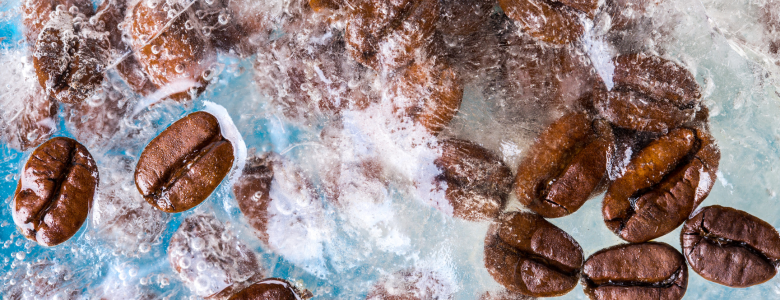
Summary
To wrap it up, storing your coffee beans in an airtight container is one of the best ways to keep them fresh. It protects against the main enemies of coffee freshness: air, light, heat, and moisture. While it won't keep your beans fresh forever, it can significantly extend their peak flavour.
Remember, the key to great coffee is starting with fresh beans. Even the best coffee storage methods can't make up for old or poor-quality beans. So, buy fresh, store smart, and enjoy your coffee at its best!
Frequently Asked Questions
Does coffee go bad in airtight container?
Your coffee won't exactly 'go off' or make you sick like that forgotten milk in the back of your fridge. While these coffees are not unsafe to drink, they can certainly lose their flavour and aroma over time, even in an air-tight container.
How long does air-sealed coffee last?
Air-sealed whole coffee beans can be drinkable for up to 6-9 months, but their peak freshness lasts up to 4 weeks after roasting. Ground coffee has a shorter life, staying fresh for about 1-2 weeks after grinding and still drinkable within 3-5 months.
Do coffee beans go bad if sealed?
Coffee beans don't spoil in the traditional sense, but they lose quality over time. Even sealed, they'll eventually become stale and lose their flavour complexity.
Can I use 2-year-old coffee beans?
While it's safe to use 2-year-old coffee beans, they will likely taste stale and lack the fresh taste of freshly roasted coffee beans. You'll likely end up with a flat, bitter brew. Use beans for the best coffee experience within a month of their roast date.
